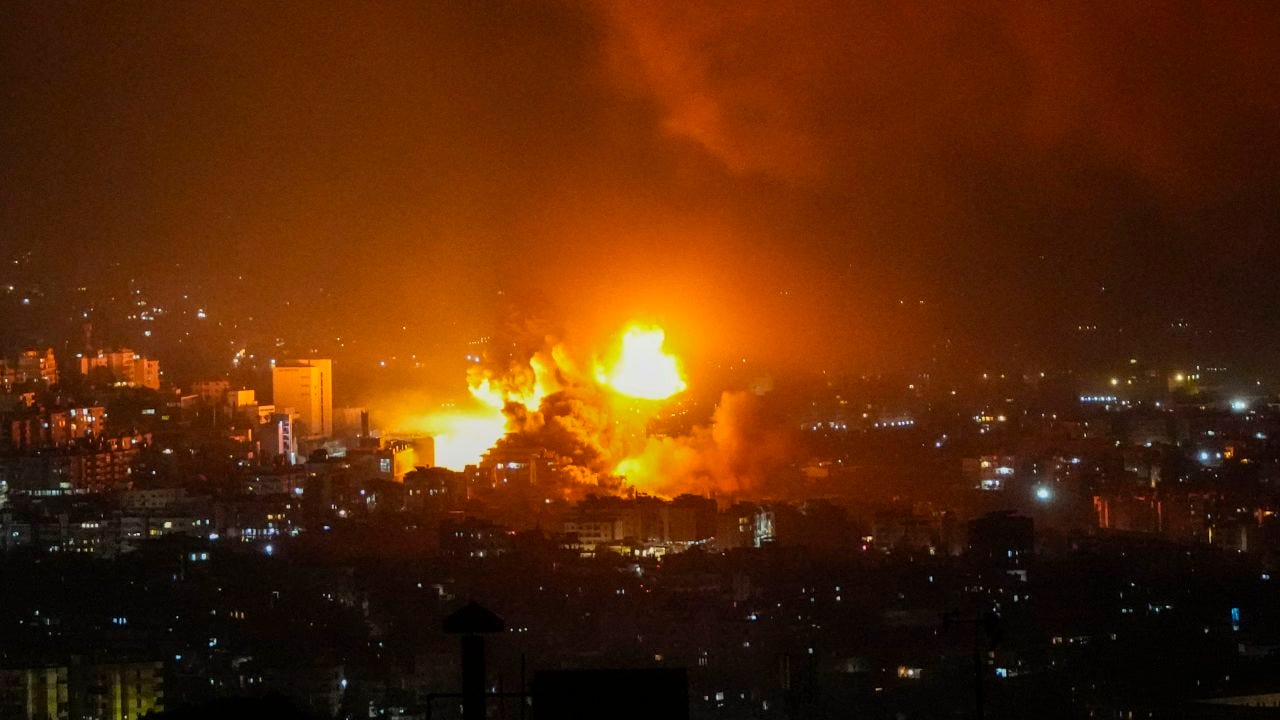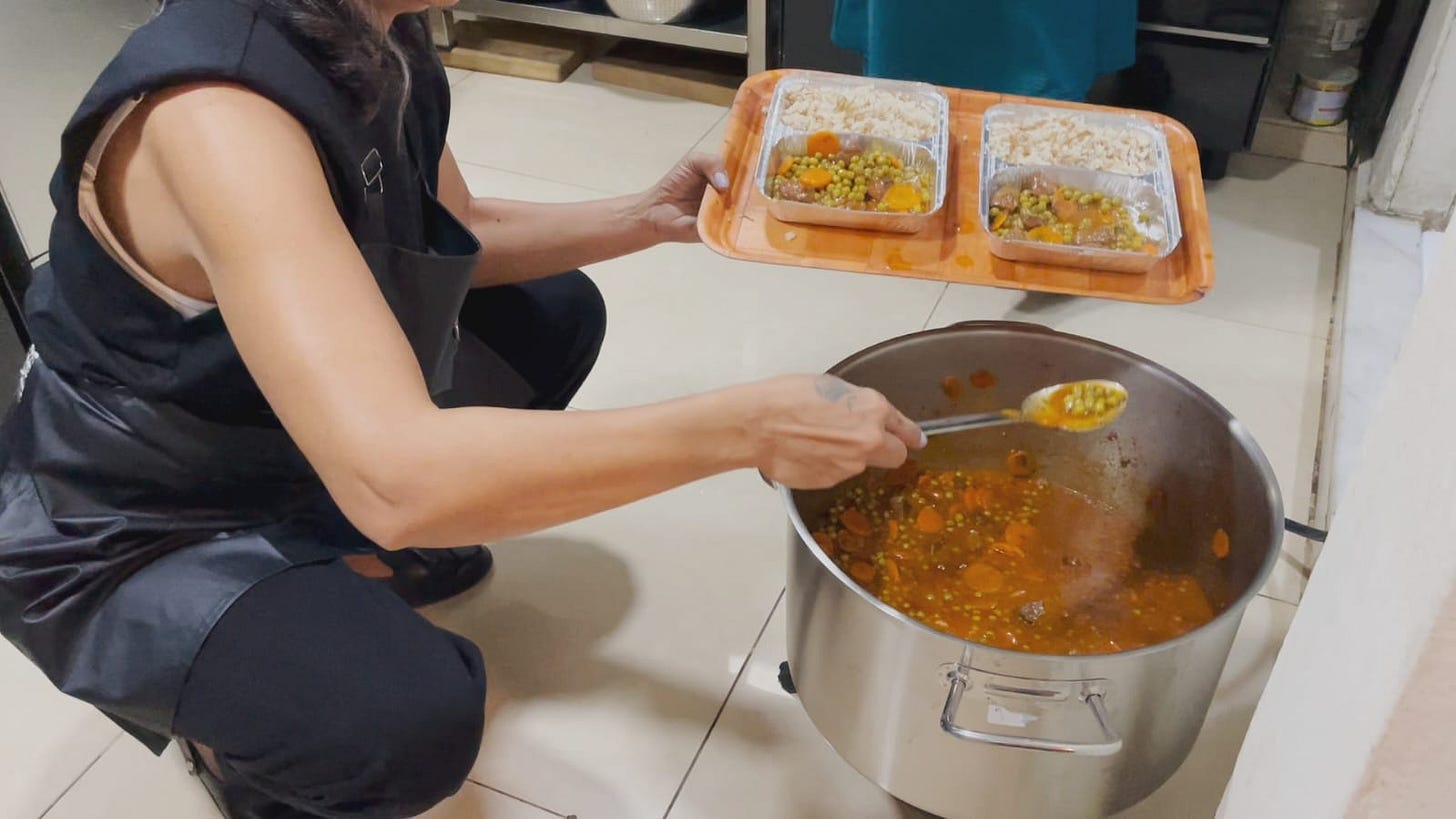Lebanese Women Create Lifeline Amid Airstrikes
How two women are feeding families displaced by the destruction

They had less than 30 minutes to escape. Families, mothers, and children flooded into the street, a few carrying snatched belongings with no time to pack bags. Most of those with cars left them in their haste to get out of Dahiye, a densely populated suburb in southern Beirut, before the Israeli airstrikes began on September 23.
That day, at least 558 people, including 50 children and 94 women, were killed by Israeli attacks across Lebanon, making it the deadliest day since the end of the country’s1975-90 civil war.
When Rasha Shukr and Nahida Tawbe started receiving calls, it was mid-afternoon. Dozens of women who produced handmade items for their Beirut boutique were suddenly homeless. “We told them to come to the atelier, where we were also hiding out from the bombs with our families,” Shukr recalls.
Recent weeks have seen an escalation in the conflict on Lebanon’s southern border, where Israel and Hezbollah have exchanged tit-for-tat strikes since the attack by Hamas on October 7, 2023. Last month, Israel stepped up its campaign in Lebanon with a series of aggressive airstrikes, including on the capital Beirut.
At least 2,350 people have been killed in Israeli operations in Lebanon over the last year, according to the country’s health ministry, with more than 1.2 million people across the country displaced.
“Nowhere is safe anymore. You hear the planes screaming overhead at night, followed by the bombings. How do you stay sane?” says Shukr, who suffered panic attacks when the airstrikes began. “Then you remember that there are much more vulnerable people,” she says.
As more and more families arrived at the atelier that day, she started calling around, searching for somewhere suitable to house over 100 people. “These women are like family to us; we feel responsible for their welfare,” says Tawbe, who co-founded Atelier Hartouka with Shukr in 2018.
The pair have a background in the NGO sector and wanted to create employment opportunities for vulnerable women who were struggling to find work as Lebanon lumbered from one crisis to the next. Last year, an Innovation Hub grant helped fund new commissions for 20 women to produce artisan clothes, bags, and jewelry for the store—but since the airstrikes began in Lebanon, sales have dried up.
Tawbe is surviving off a small sum she had set aside to go on holiday at Christmas, and Shukr has a job that helps pay for the women’s provisions, but they are no longer able to provide them with work. Instead, they found them a place to live in an empty office block owned by a friend and launched an emergency appeal on GoFundMe to raise money for their food.
Tawbe now spends most of the day in the kitchen at their other social enterprise, Zmrd Social Space, prepping lunch for 23 families. It costs around US $315 a day to feed them all. “We try to provide a balanced meal with protein, carbohydrates, and vegetables,” she says. So far, the appeal has raised over $3,000, which they hope will also help to provide food baskets and utensils to support other meals for the women, many of whom fled with nothing.
“At the end of each day, we have to remind ourselves that we can only do what is possible and that there will always be needs we cannot cover. It’s hard because we want to provide everything, but you can’t do it all,” Shukr says. The pair has leveraged their contacts in the NGO community to try to raise additional support. “Because the shelter isn’t official, our requests for hygiene kits were rejected,” Tawbe adds.
Lebanon currently has around 900 shelters operated by the government’s emergency response unit, but these spaces are insufficient for the mounting number of displaced families across the country. On Beirut’s corniche—usually populated by joggers, dog walkers, and families out for a stroll—tents have gone up as people resort to living on the streets to escape the airstrikes around their homes.
“Unfortunately, these informal shelters are left without the necessary support and are not part of the government’s emergency response plan. This means that displaced families like ours are forced to rely on grassroots efforts and personal initiatives for survival,” Tawbe explains.
Last week, she reached out to Ideas Beyond Borders and secured a grant to help cover the cost of feeding the 23 families. “Many people are focused on the personal impact of the war, but Rasha and Nahida are channeling all of their energy and resources into helping vulnerable families who have no means of supporting themselves,” says Faisal Al Mutar, President of Ideas Beyond Borders.
The pair are looking ahead to a time when they can re-open the store and restore the women’s livelihoods. In the meantime, they are with them daily, serving lunch, talking, and offering what comfort they can. “One of the worst parts for them is having no way to provide for their families. Until recently, these women were earning. That feeling of helplessness is very hard,” Shukr says.
This article was written by Olivia Cuthbert.




